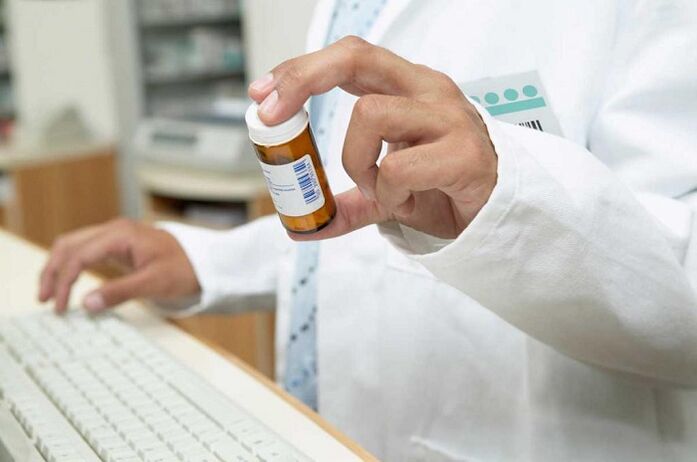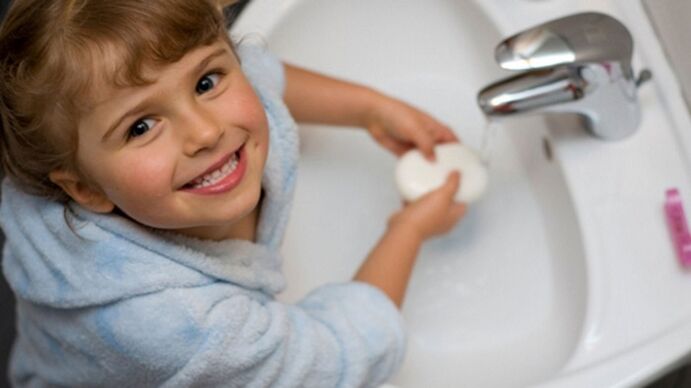Helminthiasis is a group of parasitic diseases characterized by a high degree of infection. Helmet eggs are extremely resistant, able to stay on various surfaces in the environment for a long time, while maintaining their vitality. It’s sad that helminth eggs surround us everywhere: in soil, water, earth, dust, food, and pet hair. However, preventing infection is quite simple, you only need to follow a few preventative measures: personal hygiene and general health standards. After all, preventing worms is the best way to protect yourself from the invasion of helminth.
Ways of infection with helminthiasis
You can infect worms in the following ways:
- when consuming contaminated meat and fish;
- in the case of unwashed vegetables and herbs, fruits and berries;
- through dirty hands;
- some aquatic parasites can penetrate the skin;
- through infected insects that are intermediate hosts of larvae;
- through infected feces;
- through parasite-infected domestic animals.
Prevention of worms in adults
The prevention of worms in humans is not limited to the observance of the rules of personal hygiene, pharmacological preparations are also used for prophylactic purposes. Synthetic anthelmintics should only be prescribed by a specialist, depending on the patient's age, weight, and general health. Such drugs should not be self-healed and taken on their own, as parasites are of different types and live not only in the intestines but also in other organs. Also, keep in mind that a bad dose or uncontrolled intake can do great damage to your body.
First, if the wrong dose is applied, the parasites do not die but migrate from the gastrointestinal tract to other organs.
Second, anthelmintic drugs are very toxic, can cause severe poisoning in the body and liver damage.
Third, most anthelmintics only affect adults, and their larvae and eggs remain intact.

Worm prevention is a set of measures that are not limited to just one pill or just rules of personal hygiene. The only thing is that in some cases it is enough to observe only personal hygiene, while in others these measures are few, supplementing them with pharmacological agents. Only the doctor will determine in which cases the usual preventive measures are sufficient and in which tablets should be added.
Adherence to the rules of personal hygiene
However, it is well known that it is easier to prevent disease than to cure it. Before the illness makes itself felt, it is better to follow the basic rules of personal hygiene. In addition, preventive measures are quite simple and very effective. Control measures against parasitic infections:
- frequent hand washing with soap and water, especially after using the toilet and before meals;
- frequent change of underwear and bedding;
- high quality heat treatment of meat and fish;
- consumption of raw meat and fish products and low or medium rare steaks;
- thorough washing of vegetables, herbs, fruits and berries under running water;
- use smoked, salted or dried fish with extreme caution,
- after any contact with pets, hands should be washed thoroughly and the cat litter should be cleaned with protective gloves; the cat's tray and bowls must be treated with disinfectant;
- ironing of underwear and linen after washing;
- do not use water from unknown sources for food and do not swim in unknown bodies of water;
- cut your nails short as helminth eggs are able to stay in the nail hole even after a thorough hand wash;
- regularly deworming worms;
- use protective gloves when cleaning the room and working in the garden.
How to protect children from parasites
Toddlers are potential victims of helminths because infants are unable to perform personal hygiene on their own. Moreover, in this age they get to know the world around them, they taste everything. Therefore, there is a high probability that a parasite invasion will develop in the child. In this case, the child's parents take preventive measures. However, it is impossible to keep track of babies, they are quite active at this age and can become infected with helminthiasis in an instant.

Prevention of worms in children requires:
- wash your child’s hands frequently, from an early age to get used to the basics of personal hygiene;
- iron baby underwear and bedding;
- disinfect your toys and wash soft toys in hot water;
- do not allow pets to sleep in the same bed as your child;
- teach your child to wash their hands after each contact with a pet;
- the child's food is subjected to high-quality heat treatment;
- wash vegetables and fruits thoroughly under running water;
- keep the child's room clean and tidy;
- treat the area where the child climbs (if less than 1 year old) with disinfectant.
If a sudden infection has occurred, only one doctor can prescribe methods to treat helminthiasis. You should not self-heal because your child’s health and life are at stake.
Anthelmintics are potent toxic agents. The child should be treated with great care and strict supervision under the supervision of the treating physician. Only your doctor will prescribe the type and dose of your medicine, as each medicine refers to a different age.
Children should only be given medication for worms if they have been accurately diagnosed with a parasitic invasion. Otherwise, the child should not be exposed to the toxic effects of anthelmintic drugs. Parents should only coordinate all their activities with their doctor.
How to take tablets against worms
All medicines for worms are divided into:
- narrow spectrum drugs;
- broad spectrum drugs.
The first drugs affect a certain type of helminth and only destroy them. The second type of drugs affect most of the different types of parasites (round, flat, and tapeworms). In addition, some drugs affect the respiratory system of helminth, others cause muscle paralysis, others stop the process of glucose absorption, and others block the metabolic processes in the worm’s body. All of these actions contribute to the death and removal of parasites from the body.

Experts believe that the prevention of helminthiasis should be done twice a year. Once in early spring, the second in late fall, before the start of the cold period. Concomitant use of medications is required when a patient experiences symptoms caused by a parasitic invasion. These are usually:
- abdominal pain;
- nausea and vomiting;
- itching in the anus;
- general weakness and malaise;
- insomnia;
- weight loss.
Anthelmintic therapy is performed for up to 3-5 days. With a single dose of worms, not all parasites can die, and the others are able to migrate from the intestines to other organs and even have time to lay eggs. After two weeks, the administration of anthelmintic drugs should be repeated to kill newly appeared helminth samples.
Anthelmitic therapy consists of three stages that last for about two weeks:
- The first week is about expelling the parasites from the body. To this end, they maintain a light diet, taking medications that improve bile outflow and the work of the gastrointestinal tract.
- The second stage involves the direct administration of anthelmintic drugs. The cure is 5 days.
- The third stage is the removal of dead parasites from the body. Laxatives and enemas are used for this purpose. The last stage is very important as the body of helminths begins to decompose, causing severe poisoning in humans.
Anthelmintic drugs
In the pharmacological market, anthelmintic tablets are very well displayed, in addition to different price categories. The following pharmacological agents are used to prevent worms:

Based on levamisole
Medicines improve the body's defenses by producing the necessary antibodies in the blood. Drugs inhibit the process of oxidation (glycolysis) of glucose, causing the death of parasites. The drugs are effective for various parasitic invasions. Side effects can be seen in the form of nausea, vomiting and abdominal pain.
Based on mebendazole
It is most effective in the treatment of ascariasis, enterobiasis and trichocephalosis. Drugs disrupt the metabolic processes in the body of the parasite, causing its death. The funds are very toxic as they can accumulate in the body. Therefore, they should not be used on their own without a prescription as it can cause serious damage to the body. Contraindicated in pregnancy and lactation and in the presence of chronic pathologies.
Albendazole based
The drugs are effective in killing both helminths and protozoa, so they can be used in mixed parasitic infections. It should be used with caution in patients with liver disease. The dosage and frequency of administration are chosen individually in each case, as this depends on the type of parasite and the extent of the infection. The use of these drugs for prophylaxis provides fairly reliable protection against various parasites.






































